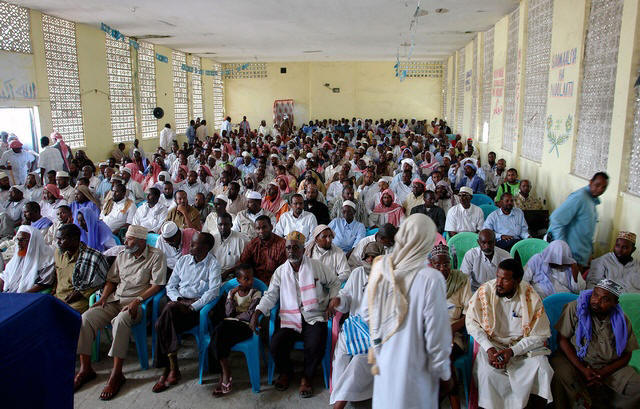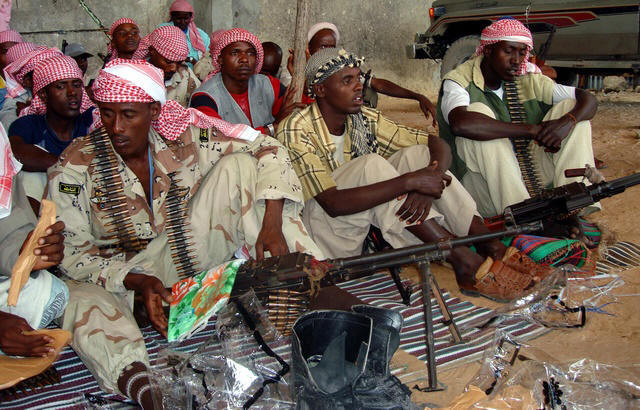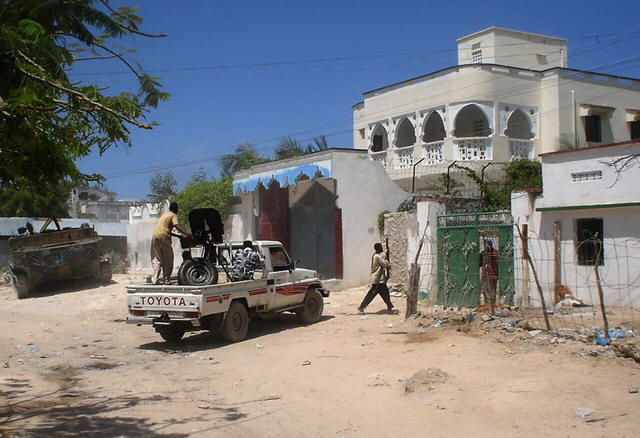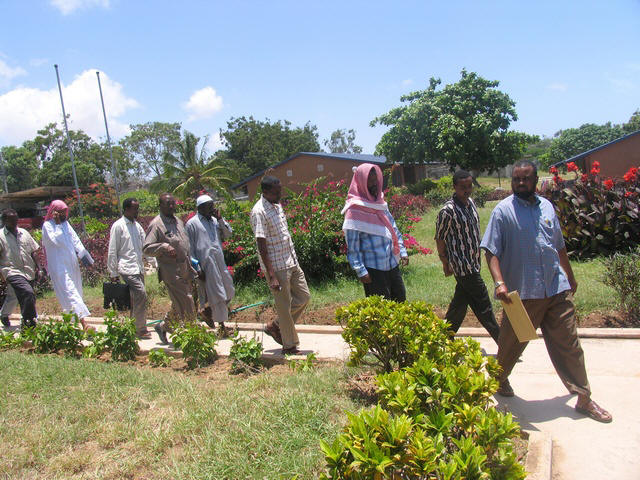|
Zooming in Extremists |
|
EXTREMISTS EMERGE
Extremists emerge as the real face of Somalia's Islamic courts
By ANTHONY MITCHELL Associated Press Writer 12 October 2006
NAIROBI, Kenya (AP) - The shadowy military commander of the Islamic movement that is advancing across southern Somalia has begun to go public, and is arousing concern among diplomats and counterterrorism experts who allege he is an extremist with links to al-Qaida.
As the rebels seize town after town, Aden Hashi Ayro is increasingly taking a public role, and it may be a signal that radicals within the country's Islamic movement are gaining the strength to put their anti-Western, anti-modern stamp on Somalia.
Ayro, who is in his mid-30s, is said to have received al-Qaida training in Afghanistan. He has been linked by U.N. officials to the murders of 16 people, including BBC journalist Kate Peyton. Counterterrorism officials also believe he was involved in a plot -- never carried out -- to bring down an Ethiopian airliner.
He has never been photographed and only last month did he step from the shadows in Kismayo, Somalia, to address hundreds of his gunmen who had just seized the strategic seaport without firing a shot. An Associated Press reporter who was in the crowd of spectators described him as goateed and turbaned, with two Belgian-made pistols stuffed into his waistband.
In Kismayo, Ayro became the first official in the movement to acknowledge a long-rumored connection with foreign fighters, saying: "Among our militia will be Somalis and foreigners." Journalists covering his speech said he had bodyguards who looked Arab, and were told others were from different African countries and from Central Asia.
Since June, Islamic forces have captured almost all of southern Somalia's strategic and economic centers, making them the de facto authority in the shattered African nation.
The fighters are under a loose alliance of Islamic courts, some more radical in their interpretation of Quranic law than others. With the courts has come a semblance of order after 15 years of chaos and civil war, but also a strict and often severe interpretation of Islam. They have brought public floggings and executions of criminals to Mogadishu, the capital.
Western governments say it is too early to tell who will emerge on top -- moderates within the Islamic council or hard-liners like Ayro.
U.S.-based counterterrorism expert Peter Pham said moderates cannot compete because the hard-liners control the guns. "What we have here is a dangerously radical movement," he says, and accuses the West of being in "an ostrich-like sense of denial."
Ayro is the courts' link man to al-Qaida, according to Pham, diplomats in the region, and U.N. investigators.
Ayro's boss, Sheik Hassan Dahir Aweys, nicknamed the Old Fox, also is of concern. The U.S. government accuses him of also having links to al-Qaida. But analysts and diplomats say he's the only one with enough military might to make radicals like Ayro share power with Somalia's cornered government.
Mogadishu residents, afraid to give their names for fear of reprisal, have said al-Qaida suspects operate from a camp established in an old Italian cemetery in the capital. The camp, along with a mosque and a clinic, went up after Ayro's men in January 2005 dug up more than 700 bodies that had been buried there between 1908 and 1941, when Somalia was an Italian colony. They dumped the bones at the airport.
At a London inquest in 2005 into the murder of a British couple in Somaliland, a breakaway part of Somalia, British police detective Jill Bailey testified Ayro was likely linked to al-Qaida. She said a plan to blow up an Ethiopian airliner and bomb-making manuals were found at a property owned by Ayro. Ayro owned the house where his brother-in-law, Mohammed Ali Essa, was captured, the inquest was told. Essa was one of 15 convicted by a Somaliland court of killing the couple. Essa was among eight -- four tried in absentia -- sentenced to death; seven were given life sentences. The death sentences have not yet been carried out and Essa is jailed.
Ayro underwent military training in Afghanistan before the U.S. invasion in 2001, according to a report on Somali extremists by the International Crisis Group, an independent think tank that monitors conflicts. The December report said Ayro's "militia has links to al-Qaida operatives in Mogadishu ... to whom it provides protection."
© 2006. The Associated Press. All Rights Reserved.
Beware of Extremists, Says Somali President
by Mugo Njeru October 11, 2006
Nairobi -- Somalia's president Abdullahi Yusuf has warned African governments to be wary of a creeping culture of suicide bombers following an attempt on his life three weeks ago.
Never before has the Horn of Africa region witnessed an incident such as his attempted assassination on September 18 which left scores of people dead.
"I'm a soldier by training and I can tell this is the first time this has happened in this region and we have to protect ourselves from these terrorists," Mr Yusuf said in an an exclusive interview with the Nation at Baidoa - the seat of his Transitional National Government.
The culture of suicide bombers, he said, was only common in Middle East and Asian countries.
Although investigations into the attack were going on, preliminary findings pointed fingers at a local organisation - Al-Itihaad Al-Islamiya - which is affiliated to the Union of Islamic Courts, believed to have links with the al Qaeda terrorist network.
"They were terrorists and belong to the Islamic Courts and they are allies of al Qaeda, while others are actually active members," said President Yusuf.
Intelligence sources of the fledging government further disclosed that two vehicles belonging to members of his parliament were also under investigations over claims that they were used in the assassination bid.
Mr Yusuf gave a chilling account of how he escaped death by a whisker even as the vehicle he was in was rocked by a bomb explosion.
The president said he was lucky to have escaped with minor burns on his neck and slight injuries to his face sustained from flying broken windscreen pieces.
He recalled seeing the burning shell of his lead security car after being tossed by the impact of the bomb before a Toyota Landcruiser veered in front of his car which rammed it in the rear.
Three of his security agents in the car died on the spot while three others sustained serious injuries.
"My car also exploded and my security men pulled me out of the burning car only to be met by a hail of bullets from both sides of the road from the enemies who were dressed in military uniform," he said.
Many members of the hit squad were shot dead by his team as some shielded him and got him into another car which sped him to the safety of the presidential residence a few kilometres away, said President Yusuf.
He said the incident happened shortly after he had addressed members of his Parliament and maintained that his government would continue ruling despite the threat posed by the Union of Islamic courts.
Before he boarded his car, he said, he was seen out of the temporary parliament building by his prime minister, Mr Mohamed Ghedi and the Speaker, Mr Shariff Hassan Sheik Adan.
© 2006 AllAfrica, All Rights Reserved
|
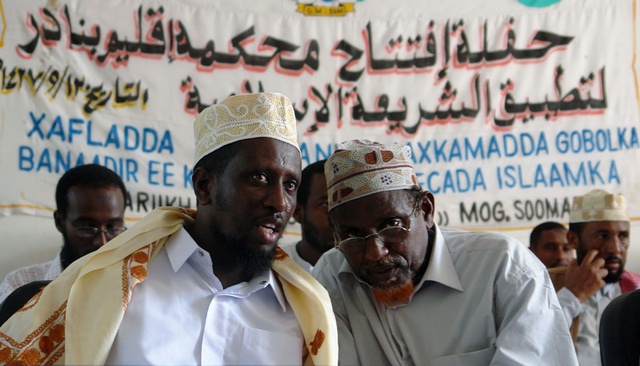
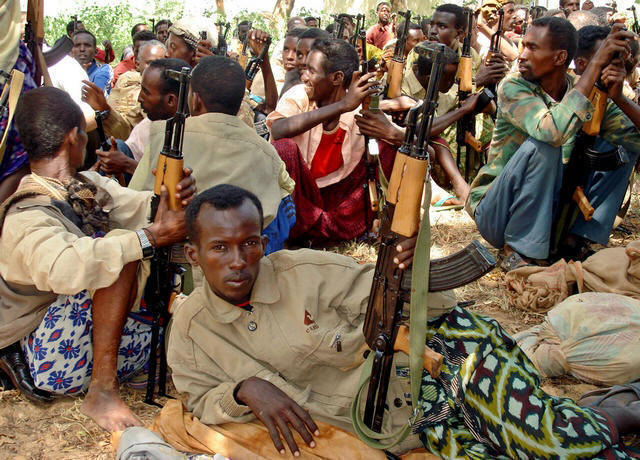
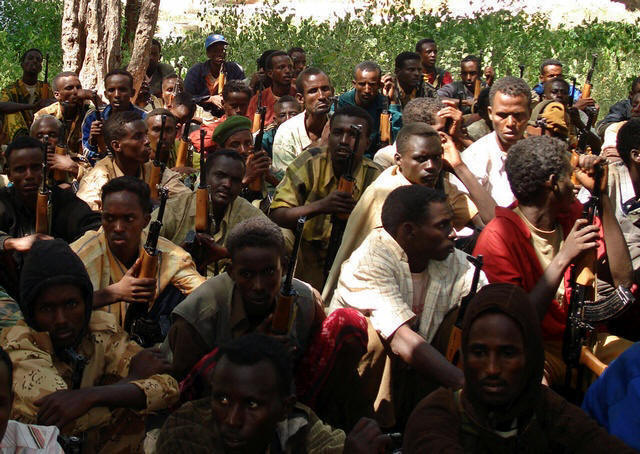
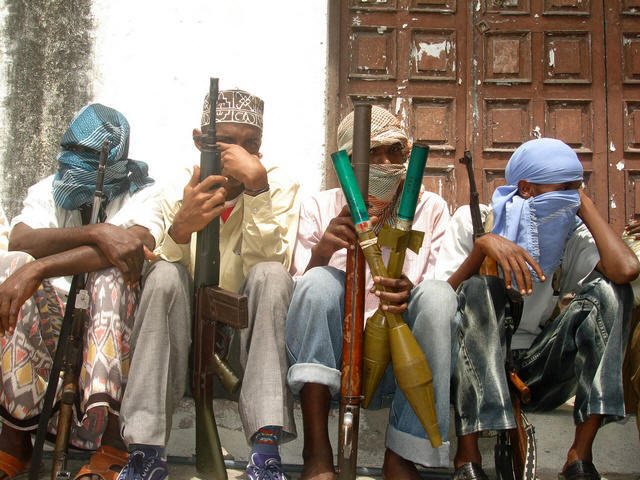
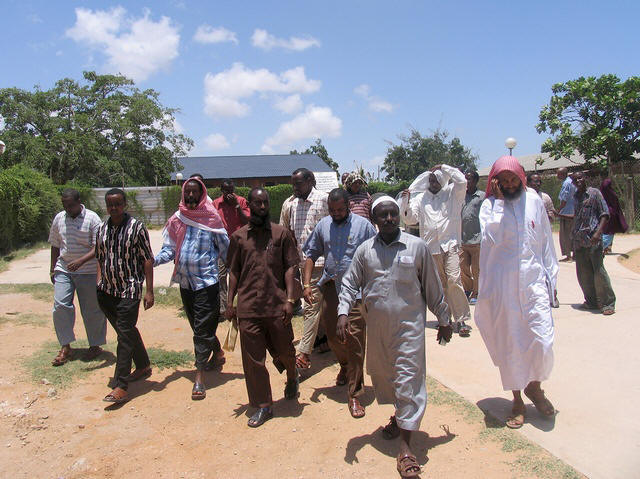
.jpg)
